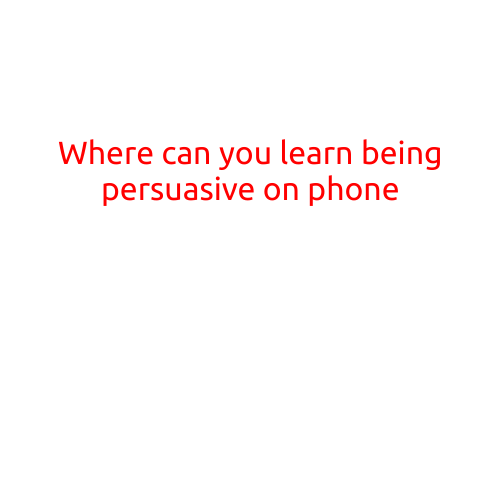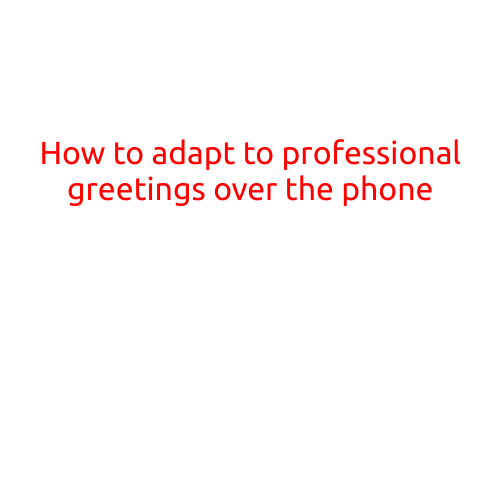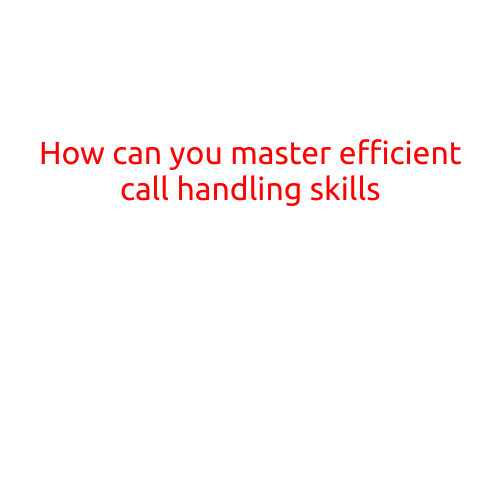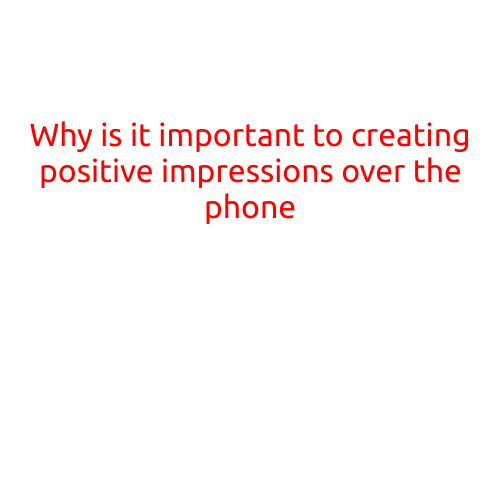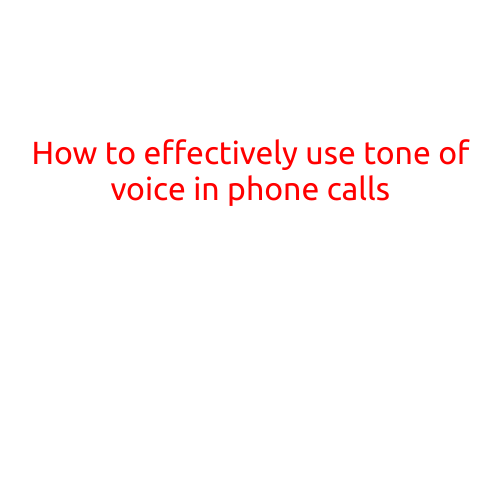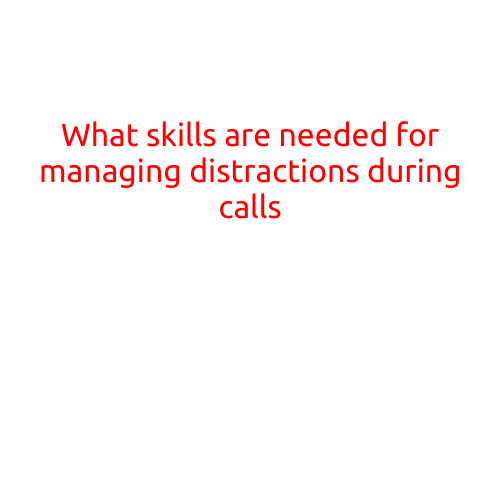
What Skills are Needed for Managing Distractions During Calls?
In today’s fast-paced world, distractions are inevitable, and it can be challenging to focus on a single task, especially during calls. As a result, effective communication and caller engagement become crucial to achieve desired outcomes. Many of us, however, struggle to manage distractions during calls, which can lead to poor call quality, misunderstandings, and lost opportunities.
So, what skills are needed to manage distractions during calls?
1. Emotional Intelligence
Emotional intelligence (EI) is the ability to recognize and manage one’s emotions and those of others. During calls, managing emotions is vital to maintaining focus and building trust with the caller. Individuals with high EI can acknowledge and address their emotions, as well as empathize with the caller’s concerns, leading to more effective communication.
2. Attention to Detail
Attention to detail is critical when managing distractions during calls. This skill enables individuals to focus on the conversation and capture key information, even in the presence of external distractions. Those with strong attention to detail can prioritize the call, identify the most important issues, and respond accordingly.
3. Active Listening
Active listening is the foundation of effective communication. When we listen actively, we focus on the caller’s words, tone, and body language, ensuring we understand their concerns and needs. Active listeners can manage distractions by staying present and engaged throughout the call.
4. Flexibility and Adaptability
Flexibility and adaptability are essential skills for managing distractions during calls. Unforeseen events can occur during a call, such as a sudden change in the context or an unexpected question. Individuals with these skills can adjust their approach, think on their feet, and respond accordingly.
5. Strategic Use of Technology
In today’s digital age, technology plays a significant role in distractions during calls. Strategic use of technology, such as setting preferences for notifications, muting background noise, or using noise-cancelling headphones, can help minimize distractions and maintain focus.
6. Self-Awareness
Self-awareness is the ability to recognize and understand one’s own strengths, weaknesses, and emotions. During calls, self-awareness enables individuals to identify potential distractions, such as overthinking or emotional reactions, and proactively manage them.
7. Clarity of Purpose
Having a clear understanding of the call’s purpose and objectives helps individuals stay focused and motivated, even in the face of distractions. Clarity of purpose allows individuals to prioritize the conversation, stay on track, and maintain caller engagement.
8. Multitasking
Multitasking is often seen as a key skill for managing distractions during calls. However, it’s essential to recognize that multitasking can be a double-edged sword. While it may be possible to perform multiple tasks simultaneously, it can also lead to decreased focus and increased distractions. Effective multitasking requires discipline, attention to detail, and strategic task prioritization.
Conclusion
Managing distractions during calls requires a combination of skills, including emotional intelligence, attention to detail, active listening, flexibility, strategic use of technology, self-awareness, clarity of purpose, and multitasking. By developing these skills, individuals can build effective communication habits, increase caller engagement, and achieve desired outcomes. Practice these skills, and you’ll become more confident and successful in your communication efforts.
